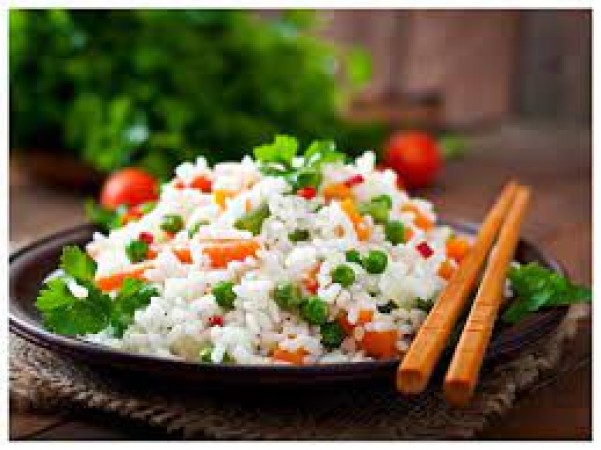
Rice, a staple in many diets worldwide, is cherished for its versatility and affordability. Its neutral taste makes it an excellent canvas for various dishes. However, the convenience of daily rice consumption comes with a set of potential health concerns that we need to address.
Rice enjoys a global fan base for its comfortingly familiar taste and wide-ranging uses in culinary traditions. It's the foundation of countless dishes, from sushi to risotto, biryani to paella.
One of the primary components of rice is carbohydrates. Carbs serve as a vital energy source for the body. However, consuming an excessive amount of carbohydrates can lead to weight gain and related health issues, such as obesity.
Rice, especially the white variety, has a high glycemic index (GI). This means it can cause rapid spikes and crashes in blood sugar levels. Such fluctuations are problematic for individuals with diabetes or those prone to sugar crashes.
Rice is naturally gluten-free, making it a safe dietary choice for individuals with celiac disease or gluten sensitivities. It allows them to enjoy grains without the harmful effects of gluten.
Rice, especially white rice, is relatively low in essential nutrients like vitamins and minerals. Depending solely on rice as a primary food source can lead to nutrient deficiencies over time.
White rice, the most commonly consumed type, lacks dietary fiber. This can affect digestive health and lead to issues such as constipation. Consuming brown or whole-grain rice varieties can help address this concern.
One lesser-known concern is the potential for rice to absorb arsenic from the soil. Prolonged and regular consumption of rice may increase exposure to this toxic element, which can have detrimental effects on health.
Enjoying rice in moderation is essential. Controlling portion sizes can help prevent overconsumption of calories and carbohydrates. Paying attention to serving sizes is particularly crucial for those watching their weight or managing blood sugar levels.
Including a diverse range of grains and foods in your diet ensures you get a broad spectrum of nutrients. Whole grains like quinoa, oats, and barley can provide a more balanced nutritional profile compared to rice alone.
While rice is undoubtedly a versatile and nutritious food, consuming it daily should be done with caution. It's vital to strike a balance between enjoying rice dishes and being mindful of potential health risks. Incorporating whole grains, fruits, vegetables, and lean proteins into your diet can provide a more well-rounded and nutritionally balanced approach to eating. Variety is key to ensuring that you get the full spectrum of essential nutrients your body needs to thrive. So, if you're a rice enthusiast, continue to savor your favorite dishes, but always remember that moderation and dietary diversity are the cornerstones of a healthy and balanced diet.
DMRC's WhatsApp Ticket Booking: Seamless Travel on Delhi's Metro Lines
These are the most famous national parks of India, their beauty makes one crazy